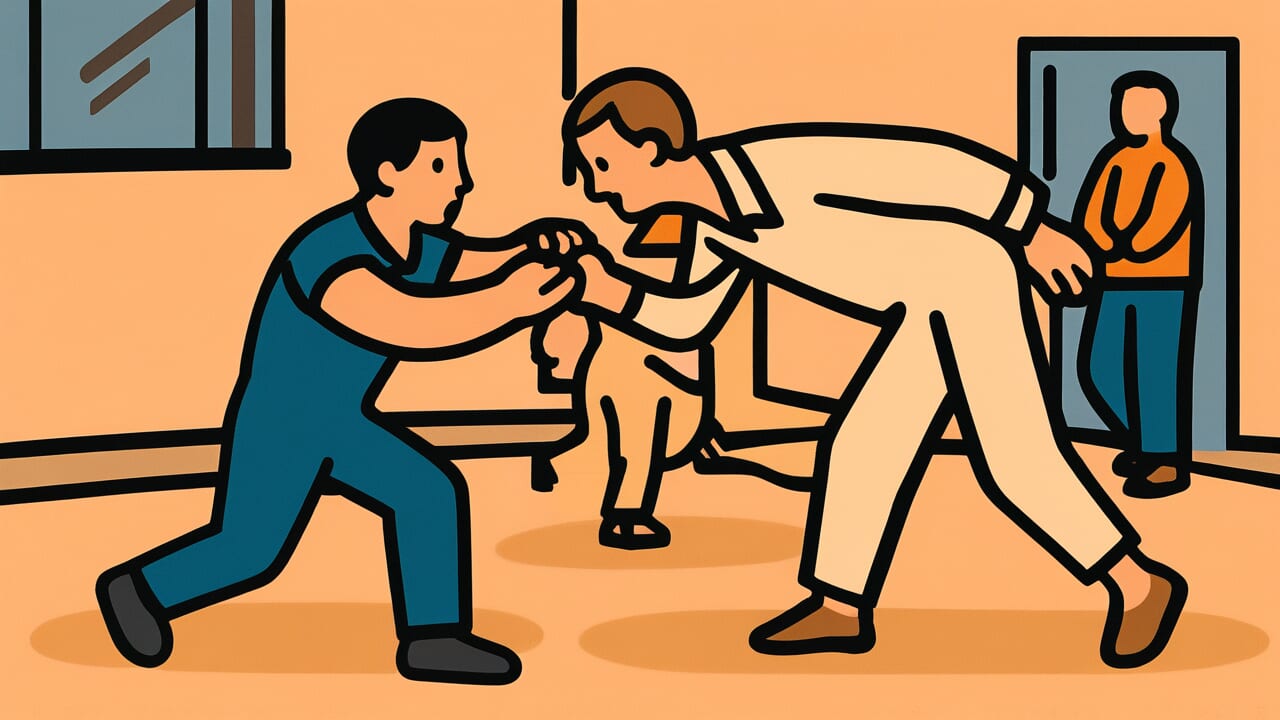How to Read “A hasty person leans on others”
Tsukkakemono no hitomotare
Meaning of “A hasty person leans on others”
“A hasty person leans on others” describes someone who depends on others without doing anything themselves.
It refers to people who live by constantly relying on someone else, without making their own efforts or using their own ingenuity.
This proverb is used to critically describe people who lack independence and always count on others’ help for everything.
It carries a warning against the attitude of never thinking or acting on your own, always relying on someone else in both work and daily life.
Even today, this saying applies to many situations. At work, some people never make decisions themselves and constantly rely on their bosses or colleagues.
At home, some people leave everything to their spouse or parents. This expression continues to be meaningful as a reminder of the importance of independence and taking responsibility for yourself.
Origin and Etymology
No clear written records explain the origin of this proverb. However, we can make interesting observations from the words themselves.
“Tsukkakemono” originally referred to slip-on sandals, a type of simple footwear. These sandals had no heel support.
You just slipped your feet into them. With only your feet holding them, they were unstable and made you want to lean on something.
This characteristic of the footwear likely became a metaphor for human nature.
“Hitomotare” means “to lean on people” in colloquial Edo period language. The verb “motareru” physically describes resting your weight on something.
Here, it expresses the state of depending on others mentally and practically.
By combining these two words, the proverb vividly depicts someone who cannot stand independently, like unstable slip-on sandals, and constantly leans on others.
This was an expression born from the everyday life of common people in the Edo period, easy to visualize and understand.
Through everyday footwear, our ancestors showed sharp observation in seeing human nature. This proverb reveals their keen insight.
Usage Examples
- He always just goes along with others’ opinions. He’s “a hasty person leans on others,” so nobody trusts him
- If you’re “a hasty person leans on others” who can’t make your own decisions, you’ll never grow
Universal Wisdom
The proverb “A hasty person leans on others” brilliantly captures the universal human weakness of dependency.
Why do people fail to become independent and try to lean on others?
At the root lies fear of taking responsibility. If you make your own decisions and take your own actions, you must take responsibility when you fail.
But if you rely on others, you can make excuses when things go wrong. You can say “because that person told me to” or “because that person didn’t do it for me.”
This psychological ease drives people toward dependency.
Also, thinking and acting on your own requires energy. Judging, deciding, and executing takes effort. This process can be tiring sometimes.
If you rely on someone, you can save that effort. Humans instinctively want to choose the easier path.
However, our ancestors saw through this. They understood that such a way of living ultimately weakens you and loses you the trust of others.
While it may seem easier temporarily, in the long run, nothing is more unstable and fragile than a life without independence.
This proverb continues to ask us across time about the importance of standing on our own feet, not flowing with immediate ease.
When AI Hears This
In bridge design, “fatigue failure” is the greatest enemy. If force is distributed evenly across the entire bridge, there’s no problem.
But when force repeatedly concentrates on the same single point, the metal bonds at that spot gradually weaken. For example, nothing happens through the 100th time, but suddenly it collapses on the 101st.
This is structural fatigue.
The same phenomenon occurs in human relationships. In a group of ten people, when there’s dissatisfaction, if only the same person complains every time, that person’s words become “repeated force” concentrated on specific relationships.
The person being told might have patience the first time, but being pointed out repeatedly by the same person creates fatigue of “that person again,” separate from the correctness of the content.
Like metal fatigue, the damage accumulates invisibly.
Even more interesting is the relationship with resonance phenomena. In physics, when you repeatedly apply force at a specific frequency, even small force amplifies vibrations and breaks structures.
In human relationships too, when the same person repeats in the same tone, the label “this person always complains” amplifies resonantly among others.
As a result, that person themselves gets “destroyed” in the form of isolation.
In other words, this proverb points not to a problem of correctness, but to a mechanical destruction mechanism.
Lessons for Today
What this proverb teaches us today is an obvious but easily forgotten truth. You yourself are the main character of your own life.
How much are you standing on your own feet right now? Are you leaving work decisions to your boss?
Are you trying to have someone else solve your relationship problems? Of course, asking for help isn’t bad.
But seeking answers from others from the start is completely different from seeking advice after thinking things through yourself.
The first step toward independence starts with deciding even small things yourself and taking responsibility yourself.
Don’t be afraid of failure. By learning from failure, you will definitely grow.
And you’ll realize something. The sense of accomplishment when you overcome a problem with your own power is incomparably greater than when you rely on someone to solve it.
From dependency to independence. This doesn’t mean becoming isolated at all.
It means standing firmly on your own feet, then cooperating with others in equal relationships. That kind of life is what truly makes you strong.



Comments